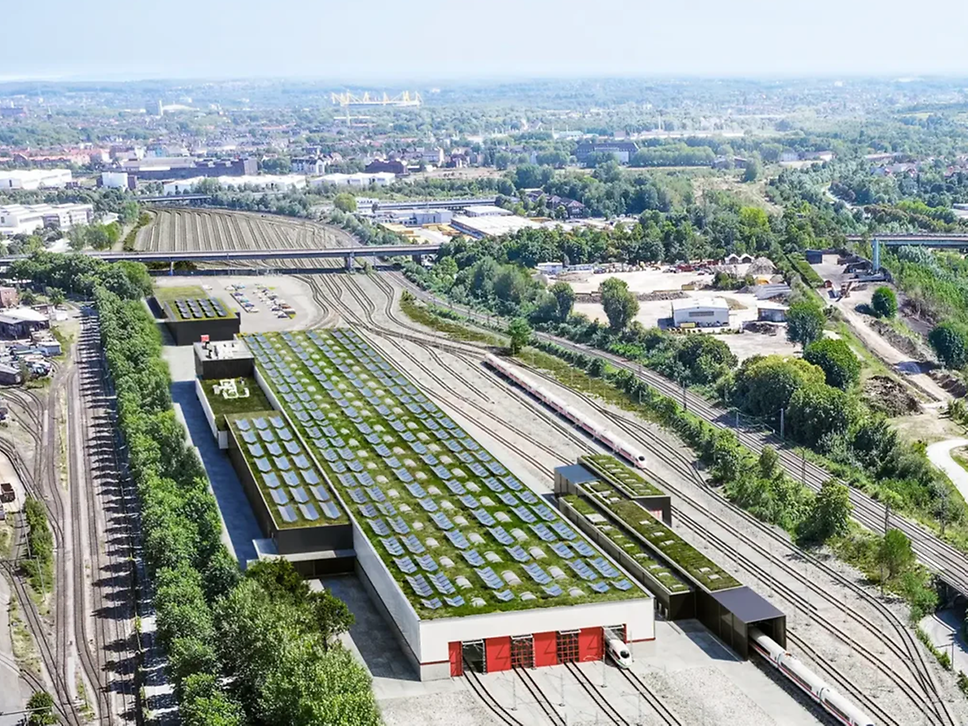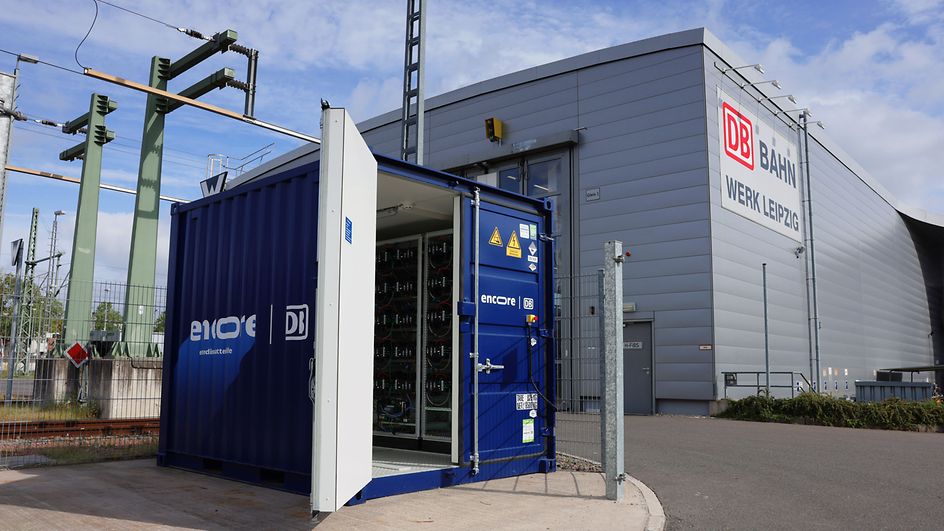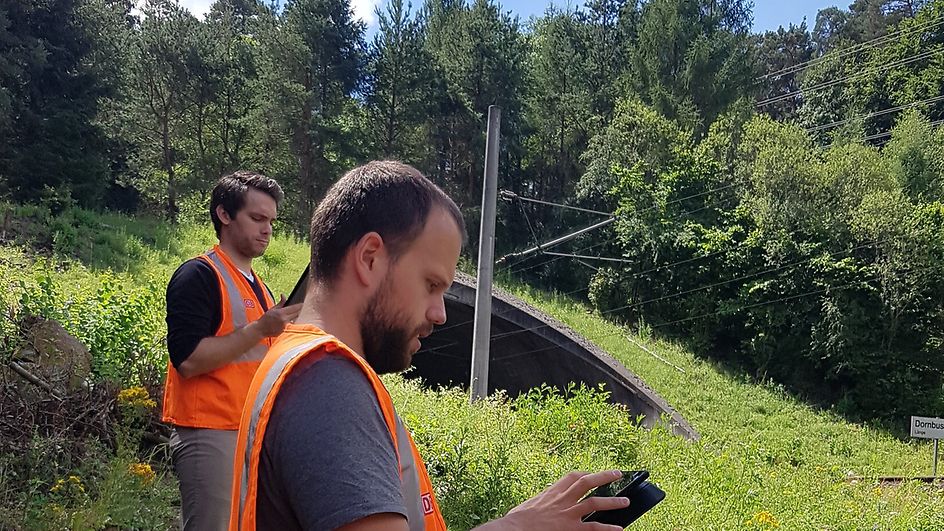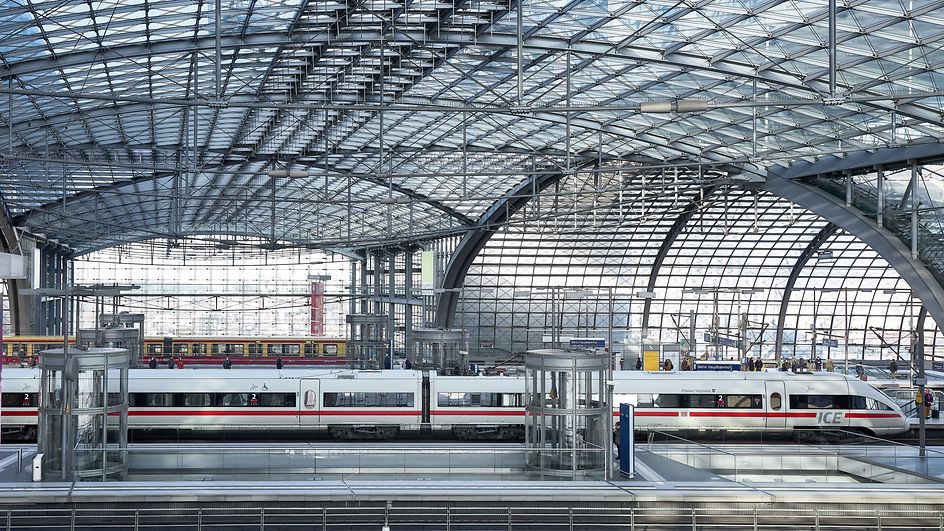Not only DB’s trains are climate-friendly on the move. Deutsche Bahn also pays attention to sustainable solutions at its depots.
Climate protection at the ICE depot
In 2018, DB commissioned a climate-friendly ICE maintenance depot in Cologne-Nippes. Geothermal power and a photovoltaic system, covering around 2,100 square meters, provide the depot with energy, while additional electricity is also sourced from renewables. LED lighting sustainably reduces energy consumption, while a solar thermal system on the roof generates heat. This supplies all washbasins, showers and staff kitchens in the depot with hot water. Charging stations are available for electric service vehicles and bicycles, and sheltered bicycle parking is provided for employees.
The new ICE depot in Dortmund is set to become one of the most sustainable depots in Europe. Geothermal energy, a photovoltaic system covering about 8,500 square meters, and around 28,000 square meters of green roof space will ensure this. By its planned completion in 2027, Deutsche Bahn will have created capacity in Dortmund for the daily maintenance of up to 17 trains.

“Green Pit Stops” at DB Regio
In Hamburg-Stellingen, DB operates another climate-friendly depot for the S-Bahn. In the 160-meter-long hall, trains can be serviced and repaired simultaneously — seven days a week, around the clock. In summer months, solar panels cover the depot’s entire electricity and heat demand. Additional electricity is sourced exclusively from renewable energies. Energy-efficient LED lighting systems and rainwater collection, which feeds back into the groundwater via infiltration systems, complete the sustainable setup.
Another example is the S-Bahn depot in Frankfurt am Main, where a rooftop photovoltaic system generates electricity, while heating is supplied in a climate-friendly way via district heating.
At the Munich-Pasing maintenance depot, DB Regio also reduces significant greenhouse gas emissions compared to conventional depots by using geothermal energy and energy-efficient systems.
100% renewable electricity for all stationary facilities
Since early 2025, Deutsche Bahn has taken another step forward by supplying all maintenance depots — as well as office buildings and other facilities in Germany powered by DB Energie — with 100% renewable energy. This includes, for example, signal boxes, point heating systems and track area lighting.






